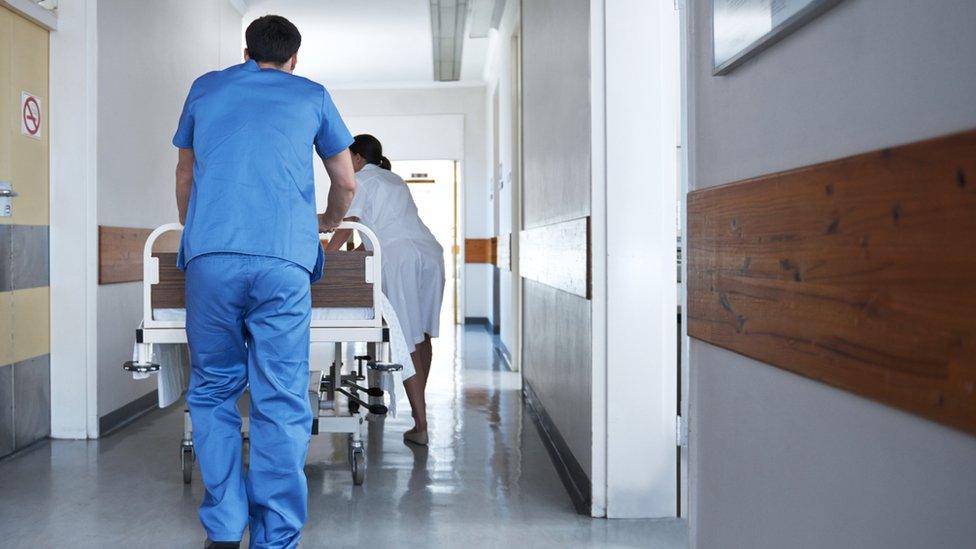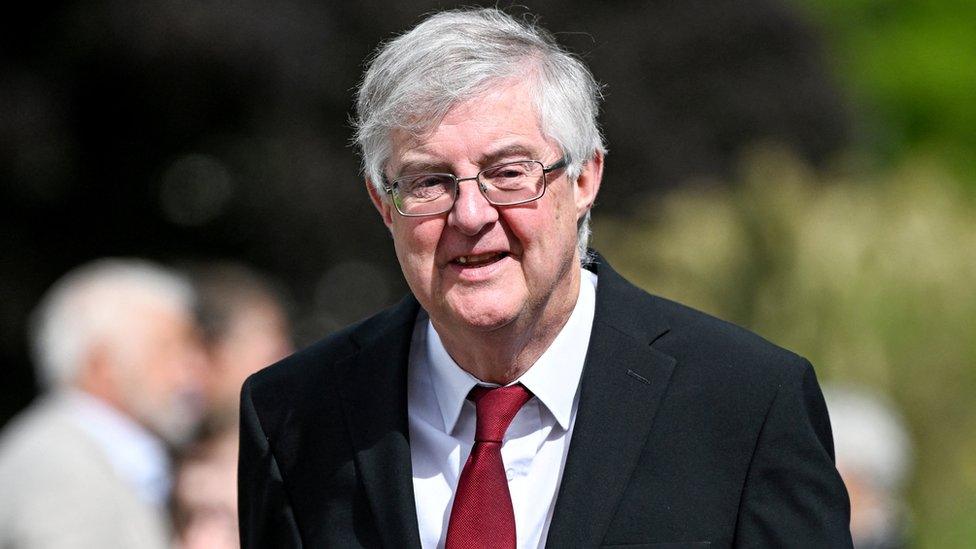Expert says Welsh budget plan to keep NHS going is risky
- Published

There is "no guarantee" the UK government will allow for up to £200m to be moved from Welsh building projects to keep the NHS and trains going, an expert has said.
David Phillips of the Institute for Fiscal Studies (IFS) said part of Mark Drakeford's plan to balance his books is risky.
Ministers want to find £600m from a combination of sources, including cuts.
They say the cash is needed because of the impact of inflation on the NHS.
Tuesday's announcement was unusual, coming in the middle of a financial year. It will see £425m extra for the NHS, and £125m for Transport for Wales.
As well as sourcing £100m from its rainy day reserves, ministers are cutting £220m from almost all its departments, apart from the NHS, Transport for Wales and councils.
Education and the Welsh language will have the largest cut of £74.7m.
The Welsh government is hoping for £150m from the UK government from extra health spending in England, known as consequentials, and is asking the UK Treasury if it can move up to £200m from its infrastructure budget to day-to-day spending.
It needs permission for that to happen - the two sets of money are usually kept separate although Welsh officials say they have been moved around in other parts of the UK government.
The first minister indicated on Wednesday that it may not be clear until "perilously" late in the financial year when the Welsh government will learn if the cash can be moved,
"Some of the aspects of our plan which do depend upon actions at the UK level, we're unlikely to know the outcome of that probably until February of next year," he told the Welsh Affairs Select Committee of the House of Commons.
The next financial year begins in April. BBC Wales was told Mr Drakeford's comments related to the request to switch cash from capital spending.
"We're not asking for money here," Mr Drakeford said. "This is our money now.
"We're just looking to use it in a more flexible way."

Speaking on BBC Radio Wales Breakfast, David Phillips of the IFS said it was "riskier" to assume that the Treasury would move capital funding than to assume it would receive extra cash from health spending.
"Normally that's not allowed. Sometimes it's been allowed for the English NHS, but there's no guarantee the Treasury will allow that."
He said the Welsh government could have to relook at its budget if the Treasury says no, unless more money came to Wales as a result of additional spending on England's health service than expected.
On Tuesday Finance Minister Rebecca Evans said she felt "very confident and confident enough to plan" on consequentials, but "less confident on the capital-to-revenue switch, and it's something we need to press the UK government on very carefully".
"I think there are still some discussions to be had there," she said.
If the negotiations do not work she said there were contingency plans and it is possible there could be extra funding for Wales in Chancellor Jeremy Hunt's Autumn Statement.
Plaid Cymru spokesperson for health and care, Mabon ap Gwynfor MS, asked "what's the government's plan B?"
"Every one of our health boards are now in some form of targeted intervention, not least because of the inability of six of the seven major health boards to break even during the last three years. They need security and assurances that they're not being set up to fail again at the end of this financial year."
Related topics
- Published5 December 2022

- Published18 October 2023
